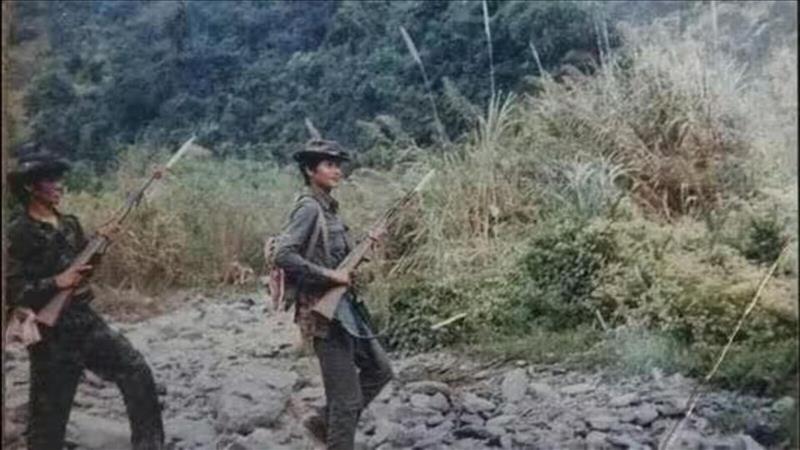ULFA Signs Peace Accord With Govt What Does It Mean For Decades-Old Assam Insurgency
(MENAFN- Live Mint) "The peace pact between the pro-talks faction of the United Liberation Front of Asom (ULFA) and the central government on Friday, December 29 has made it the red-letter day in the history of the Assam insurgency peace accord was signed in the presence of Union Home Minister Amit Shah and Assam Chief Minister Himanta Biswa Sarma.\"Assam has suffered for long due to the violence of ULFA and 10,000 people lost their lives in this violence since 1979,\" said Union Home Minister Amit Shah per the peace deal, ULFA's pro-talks faction will shun violence, disband the organisation, and join the democratic process. The oldest insurgent group in Assam continued to remain a headache for the central government for decades. It took nearly 12 years of consistent negotiations between the central government and the ULFA faction, led by Arabinda Rajkhowa to seal the pact on Friday. The pact is also expected to end decades-old insurgency in Assam of ULFAThe organisation was formed on April 7, 1979, in Sivasagar, Assam. The main motive of the founding members was to establish a“sovereign Assam” for the indigenous people of the state. Soon, ULFA leaders like Paresh Baruah, Arabinda Rajkhowa, and Anup Chetia became the top powers in the state as the group began its armed operations in the late 1980s. During the initial years, ULFA projected itself to be a group to help needy people. Later, it began an armed struggle against the Indian government.
Different factions of ULFADespite the peace pact, Assam is expected to continue to face insurgency as the hardline faction of ULFA, headed by Paresh Baruah, continues its rebellion against the Indian government and is not a part of the peace accord central government entered into talks with the ULFA faction led by Rajkhowa in 2011. The major move came after ULFA signed an agreement of Suspension of Operations (SoO) with the central and state governments.
ULFA: An extended government in Assam
When the insurgent group was at its peak in 1990, ULFA considered itself to be an extension of the government itself. Explaining the situation of Assam, senior journalist Anil Yadav in his memoir titled 'Is That Even a Country Sir' wrote,“It is said that in 1990, when the ULFA was at its peak strength, it was considered to be an extension of government itself. Not a leaf could quiver in any village in Assam without the express wish of the ULFA.”International pressure on India to take action on ULFAIn June 1990, ULFA wrote a letter to officials of major tea-producing companies like Tata Tea, McLeod Russel, Unilever, and Macneill Magor, and summoned them to Dibrugarh to discuss ways to ensure the economic development of Assam, according to Anil Yadav's memoir. After meeting the top executives of these firms, ULFA leaders demanded crores from these companies.
For Unilever, it was“three-and-a-half crore”. The multinational group was asked to pay the amount for the War Fund. The extortion of the massive amount was enough to trigger international pressure from the MNC and other firms on the central government to take tough action against ULFA. The government, in November 1990, launched its military operation named Operation Bajrang in Assam to flush out ULFA militants.
Different factions of ULFADespite the peace pact, Assam is expected to continue to face insurgency as the hardline faction of ULFA, headed by Paresh Baruah, continues its rebellion against the Indian government and is not a part of the peace accord central government entered into talks with the ULFA faction led by Rajkhowa in 2011. The major move came after ULFA signed an agreement of Suspension of Operations (SoO) with the central and state governments.
ULFA: An extended government in Assam
When the insurgent group was at its peak in 1990, ULFA considered itself to be an extension of the government itself. Explaining the situation of Assam, senior journalist Anil Yadav in his memoir titled 'Is That Even a Country Sir' wrote,“It is said that in 1990, when the ULFA was at its peak strength, it was considered to be an extension of government itself. Not a leaf could quiver in any village in Assam without the express wish of the ULFA.”International pressure on India to take action on ULFAIn June 1990, ULFA wrote a letter to officials of major tea-producing companies like Tata Tea, McLeod Russel, Unilever, and Macneill Magor, and summoned them to Dibrugarh to discuss ways to ensure the economic development of Assam, according to Anil Yadav's memoir. After meeting the top executives of these firms, ULFA leaders demanded crores from these companies.
For Unilever, it was“three-and-a-half crore”. The multinational group was asked to pay the amount for the War Fund. The extortion of the massive amount was enough to trigger international pressure from the MNC and other firms on the central government to take tough action against ULFA. The government, in November 1990, launched its military operation named Operation Bajrang in Assam to flush out ULFA militants.
Legal Disclaimer:
MENAFN provides the
information “as is” without warranty of any kind. We do not accept
any responsibility or liability for the accuracy, content, images,
videos, licenses, completeness, legality, or reliability of the information
contained in this article. If you have any complaints or copyright
issues related to this article, kindly contact the provider above.
Most popular stories
Market Research

- Japan Well Intervention Market Size To Reach USD 776.0 Million By 2033 CAGR Of 4.50%
- Japan Shrimp Market Predicted To Hit USD 7.8 Billion By 2033 CAGR: 2.62%
- Ion Exchange Resins Market Size, Industry Trends, Key Players, Opportunity And Forecast 2025-2033
- Nutraceuticals Market Size Projected To Witness Strong Growth During 2025-2033
- UK Cosmetics And Personal Care Market To Reach USD 23.2 Billion By 2033
- Primexbt Launches Empowering Traders To Succeed Campaign, Leading A New Era Of Trading






















Comments
No comment